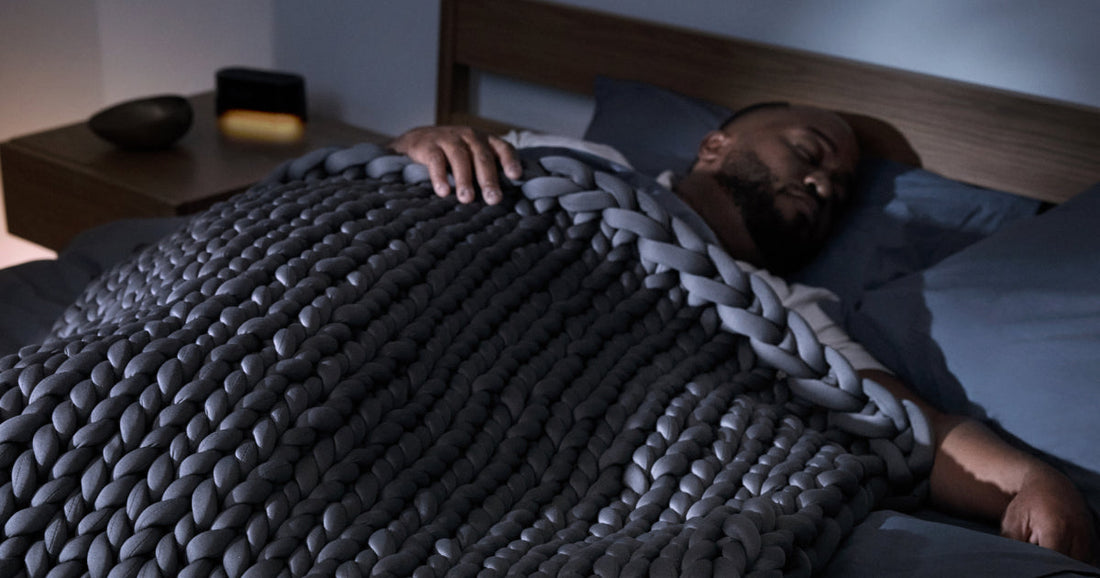
What is Insomnia?
Chanahra FletcherIt comes at night: the tossing and turning, the trouble falling asleep, and—sometimes—the endless laying awake. We can’t predict when insomnia will appear or how it’ll manifest, but when it does, we instantly wish for the peaceful rest that once came so easily. So, what exactly is insomnia, and how can you avoid it? Insomnia is a sleep disorder that affects a sleeper’s ability to fall asleep, stay asleep, or experience a restful night. It can take many forms, but, often, people experience insomnia when they can’t sleep. Either they can not fall asleep easily—even when it’s late—or they wake up too soon or too frequently to feel fully rested. Experiencing this night after night can compound and result in tiredness, irritability, or decreased mental capacity.
So, how can you curb the effects of insomnia? You can treat the causes at the source, and lucky for you, we know exactly how to do that. Whether you’ve been tossing and turning lately or simply want to learn how to improve your sleep, keep reading for tips, tricks, and advice on how to stop insomnia so you can fall—and stay—asleep at night.
What Causes Insomnia?
While there isn’t one central cause of insomnia, there are a variety of reasons someone may have trouble falling or staying asleep. The main contributors to insomnia are:
- Medical conditions and medication - Sometimes, insomnia is the result of a medical condition or its subsequent medication. Different conditions, like diabetes or heart disease, and their subsequent medications may have various effects on our body and its ability to rest. While one medical condition or medicine may not affect someone else, it can certainly impact your body and the quality of your sleep.
- Stress - From demanding jobs to sudden life changes, like divorce, stress can affect your ability to clear your thoughts and relax your body sufficiently enough to fall and stay asleep.
- Depression or anxiety - Disorders such as depression and anxiety often cyclically contribute to insomnia. The lack of sleep can leave sleepers feeling moody, foggy, or otherwise negatively impacted. These prolonged feelings of tiredness, mental fog, and exasperation can in turn negatively affect one’s mental health.
- Hormonal Changes - Hormonal changes, like menopause, contribute to sleep disturbances like changing sleep conditions or hot flashes. These uncontrollable occurrences can lead to stress, resulting in sleepers feeling unable to truly rest.
- Diet - Consuming food or substances containing caffeine, alcohol, or nicotine before bedtime can disrupt your ability to fall asleep easily.
- Travel - Traveling, especially across multiple time zones, contributes to jet lag. The resulting symptoms of fatigue, mental fog, and insomnia can persist for up to two weeks as your body adjusts to its new sleep schedule.
While many factors can contribute to your sleeplessness, they’re often connected with the mental or physical changes you’re experiencing. To find the root cause of your insomnia, reflect on the recent foods, environments, events, or circumstances that may be impacting your ability to rest.
What Are the Symptoms of Insomnia?
Insomnia can affect sleepers in many ways, but the most popular insomnia symptoms include:
- Moodiness
- Irritability
- Increased stress
- Decreased Mental Capacity, i.e., mental fog
- Fatigue
- Muscle aches and pains
Not sleeping can cause inflammation in the body and decreased mental capacity, leading to general moodiness, mental and physical fatigue, and body pains such as muscle aches or headaches. When your mind is tired, your body quickly follows, and this can create an unhealthy, unsustainable cycle. Thus, it’s essential to create a plan to stop insomnia before it starts, so you can wake rested and refreshed every day.
How to Avoid Insomnia
While insomnia can seem endless, there are ways to mitigate it. If you’ve had trouble falling asleep or staying asleep, consider:
- Creating a sleep routine and schedule — Create a consistent schedule in which you eat dinner, unwind, fall asleep, and wake up at the same time each day. When you consistently practice these activities within the same timeframe, your body will naturally follow the same pattern. You’ll begin to feel tired at the same time each night and naturally wake at the same time each morning, lessening your insomnia over time.
- Avoiding caffeine, nicotine, and alcohol before bedtime — Stop your use of caffeine, nicotine, and alcohol at least 90 minutes before bedtime each night. If your insomnia isn’t affected by the change, extend the time from 90 minutes to a time that works best for you and your schedule. Giving your body ample time to process and digest substances like these before sleeping can help you feel relaxed and fall asleep more easily come bedtime.
- Speaking with a mental health professional — Speak to a certified mental health professional about ways to decrease stressors in your life. Stress is one of the main contributors to insomnia, and healing the source of your stress with the help of a professional may alleviate any insomnia you’re experiencing.
- Creating a sleep oasis — Your room is a sanctuary—a place where you go to reflect, relax, and rest. To fully unwind each day, make sure your room is a relaxing environment conducive to sleep. Eliminate all distractions—such as televisions or cell phones—from your room around bedtime, and make sure you go to sleep with the lights off to help with the production of melatonin. Incorporate sleep aids, like a white noise machine, into your bedroom setup, and ensure you’re sleeping on soft, breathable bedding to maintain an optimal temperature throughout the night.
- Plan for multi-zone travel — Jet lag is one of the main contributors to insomnia. If you plan on traveling across two or more time zones, take steps to prepare for your travel, like waking, eating, and sleeping according to the schedule of your future destination a couple of days before you travel.
- Speak with a medical professional — If you believe your medical condition or subsequent medication is affecting your ability to rest, speak to a medical professional about pathways or alternatives you can seek to alleviate any medical side effects.
Fall—And Stay—Asleep with Tuft & Needle
No one wants to ask themselves, “Why can’t I fall asleep?” That’s why, at Tuft & Needle, we strive to ensure you never have to. From calming sleep aids like white noise machines to breezy, breathable bedding so you don’t sleep hot, we do everything possible to provide you with the mattresses, bedding, and accessories to help you sleep tight every night. Whether you’re currently experiencing insomnia or want to avoid it before it begins, you can trust Tuft & Needle to help you fall—and stay—asleep.
Interesting Fact: You're not alone. Read more about Famous People with Insomnia.




